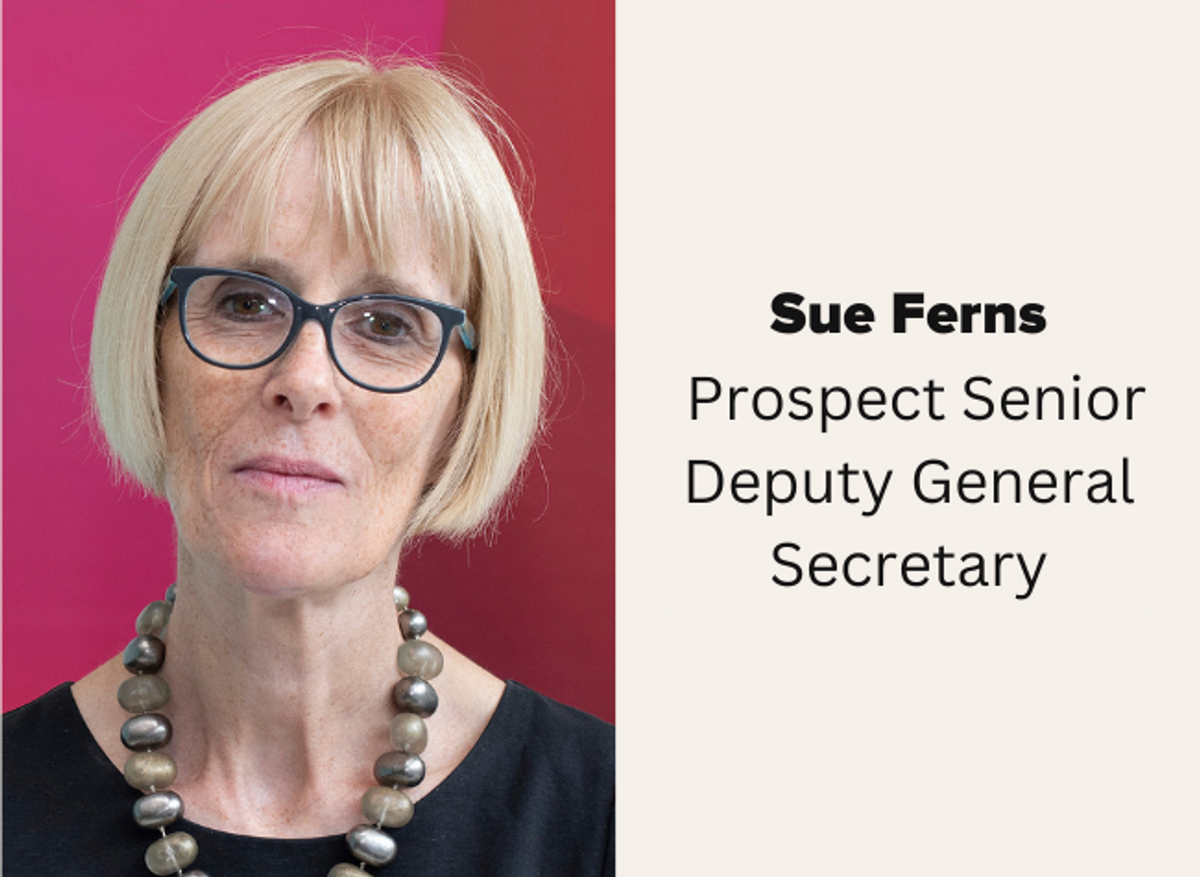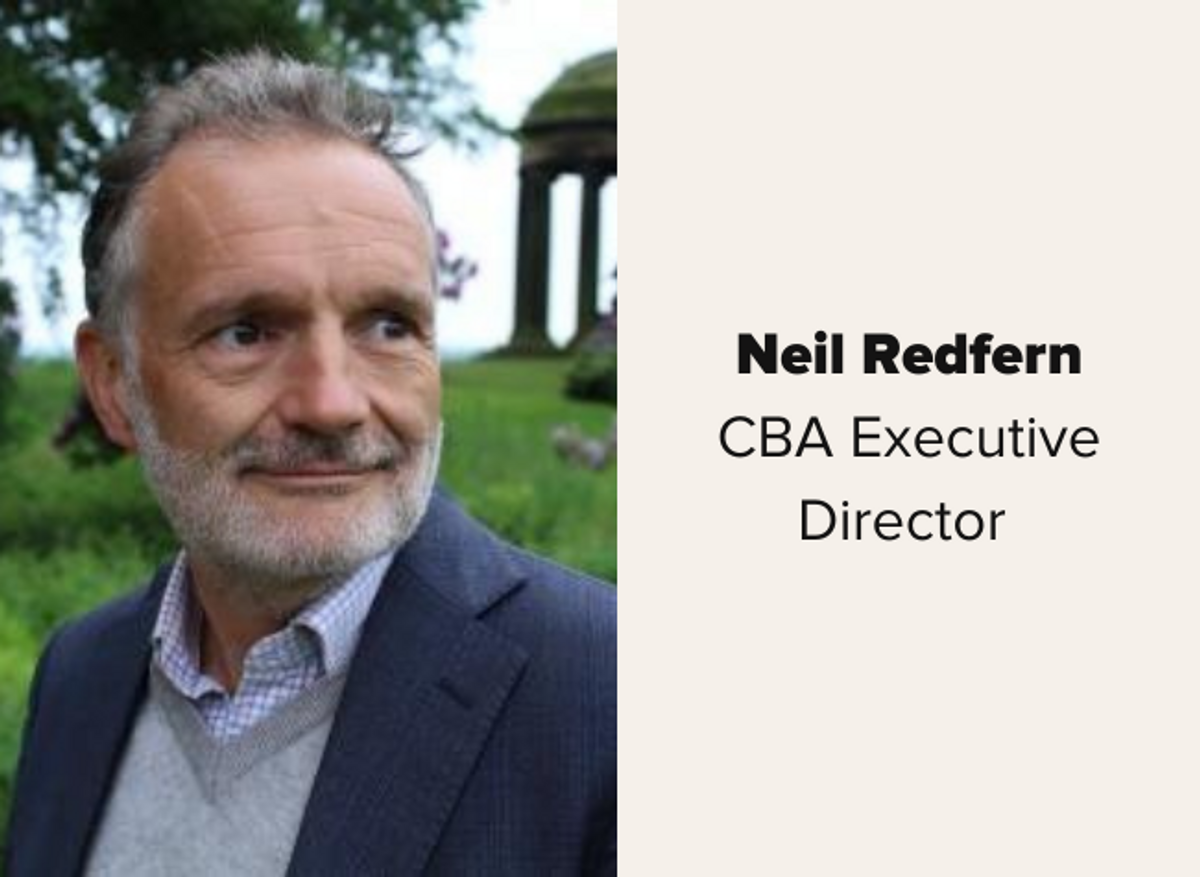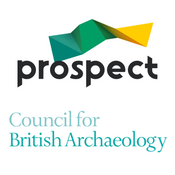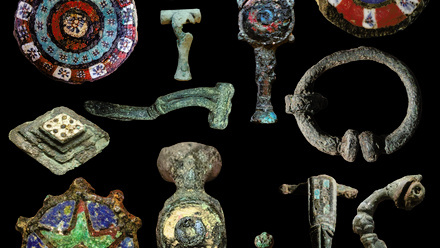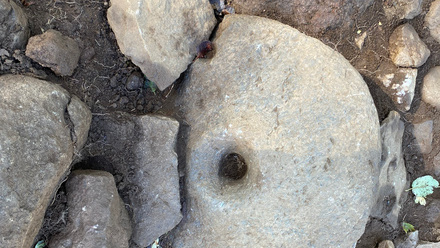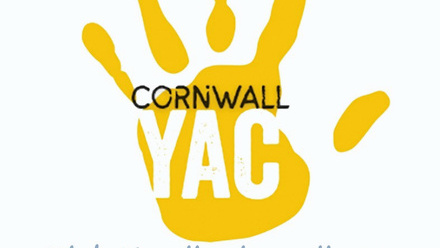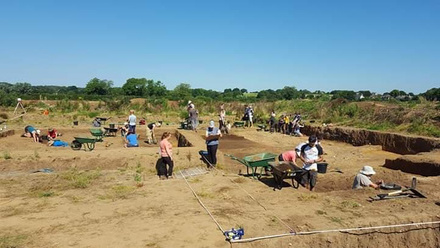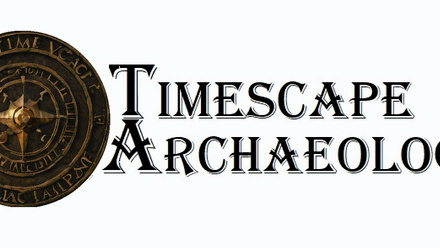Centring People in Archaeology - CBA and Propspect Launch Blog
Welcome to A Day in Archaeology, our annual celebration of archaeologists and the work of archaeologists as written by archaeologists.
Prospect
The CBA is delighted that this year we have joined up with Prospect to celebrate A Day in Archaeology.
Prospect represent over 10,000 members across the UK’s heritage, culture and arts sector, and we have a strong and active archaeologists branch.
Both Prospect and the Council for British Archaeology represent and support the very core of archaeology – people. Without people there really would be no archaeology. Investing in people relates both to those employed in archaeology and to the audiences we want to reach and work with. The purpose of archaeology is to create new knowledge and understanding not just for archaeologists but for society as a whole.
Prospect seeks to champion the field of archaeology as a rewarding career, or area of interest that should be open to anyone. Representing so many archaeologists employed in the field as we do, we are delighted to be sponsoring A Day in Archaeology and we look forward to reading the many and varied blogs that will stand testament to the hard work and commitment of archaeologists across the country.
Creating a People Centered Approach to Archaeology
How we create a people centered approach to archaeology is critical to its long-term health and survival. The CBA’s Festival of Archaeology is one platform where we attempt this through the themes we choose. This year the theme is archaeology and creativity which reflects archaeology as a creative process of exploration and imagination.
Archaeology is the process by which we create memory and meaning – the more creative we are, the more engaging our stories can be. Often we are required to fill in the gaps, to add our own interpretation and subjective reasoning – it requires us to use our imagination to make connections and to create new meaning. It requires us to be creative.
When we do this in collaboration with wider society, with non-archaeologists, when we draw in other voices and other lived experiences, when we co-create we become the story tellers and the memory makers with real impact and relevance to society today.
Reflective of society today
Whilst it is easy to talk about a people centered approach and the values we can champion through co-creation, participation and engagement, we need to reflect that as a body of people archaeology is not reflective of society today. The 2020 Profiling the Profession report by Landward Research found that 97% of working archaeologists in the UK are white. The CBA’s report on community archaeology in 2018 showed that the vast majority of audiences (93%) are over 30 years old with a significant proportion (52%) over 61 years of age and that wider representation is not improving, with 96% of respondents identifying as White British. Improving representation in the workforce and in audiences go hand in hand – one is unlikely to happen without the other. This is an issue both Prospect and the CBA care strongly about and which we are determined to address.
This profile matters because the stories and narratives we choose to tell reflect who we are and who tells them. How can we take more positive action to ensure we are more reflective of society as a whole? In 2021, the CBA undertook a diversity review of its vision, mission and values, and of activities and approaches. A key recommendation of this report was the development of a set of CBA Behaviours. It is hoped that these behaviours will act as a set of principles for staff, volunteers and trustees, and over time, through engagement and collaboration, will influence broader perceptions of archaeology. They are built around our five core values that define how the CBA works and how we want to champion archaeology, and public participation in archaeology:
- Inclusive and participatory. Archaeology is for all – it is everywhere, anyone can participate, it is open to everyone. Our role is to help people discover and explore stories, connections and new perspectives, using archaeology as a tool. Archaeology enables us to bring together diverse communities and create inclusive practice.
- Curious and enquiring. Archaeology is about curiosity and enquiry – it helps shape the questions we ask about ourselves and our environment - the places we live, work, learn from, and visit. Archaeology is an activity that helps generate understanding, knowledge, and cultural value. It helps us think about ourselves, our wider world, and the connections in between.
- Collaborative. Archaeology is best done as a cooperative process – as a conversation between people and groups which leads to different, richer, more dynamic and sustainable outcomes. There are many ways to participate in archaeology and we seek to work collaboratively with partner organisations of all sizes nationwide to increase the opportunities for everyone to get involved.
- Creative, communicative and connective. Archaeology is about thinking creatively: recognising, understanding, creating, and enhancing cultural value. Archaeology makes an important societal contribution to education, social and economic resilience, health and well-being, and it keeps people connected. Understanding, assessing, and communicating the impact and value of archaeology and participation helps us develop new methods for improving access and increasing benefits to communities caring for their environment.
- Caring and campaigning. Archaeology is central to our understanding of the natural and historic environment and how we care for it, campaign for it, protect and enhance it.
The CBA and Prospect believe wider participation is essential to archaeology - it underpins our values and approach to our work and to those who do that work. Anyone should be able to participate in archaeological activities and archaeology should be open to everyone. Archaeology is defined by its interactions with people, so people need to be at the very centre of the CBA’s approach.
This is part of our commitment to equity and inclusion and the development of our organisational behaviors. The process of developing them enhanced our understanding of three key issues we see as critical in helping us act with equity, promote a more inclusive practice, and better reflect society today:
- Othering. Othering can be defined as, ‘the act of treating someone as though they are not part of a group and are different in some way’. The opposite of othering is not ‘saming’, it is belonging. Belonging does not insist that all people are the same; it means a recognition and celebration of difference. The CBA will focus on how it can build belonging, while avoiding the possibility of othering and we hope that with their own experience of driving this sort of change across different sectors, that Prospect will be able to help us in this endeavour.
- Legacy. History shapes the present, and that includes the aspects which have led to inequalities and prejudices in modern society. Many aspects of heritage values and meaning are contested. While some people draw positive associations from them, others find them painful, traumatic, and difficult. Archaeology has been used in the past to justify and support dominant and sometimes oppressive narratives around race, nationalism, and imperialism. The CBA acknowledges this and aims to change how it reflects, describes, and uses that legacy in its work. It also aims to help others understand these issues and to help create new perceptions about archaeology.
- Representation. More needs to be done to ensure archaeology and heritage are fully representative of wider society. The CBA’s is committed to addressing organisational actions, policies, practices and procedures, and ensuring that the adopted CBA behaviours are fully reflective of society today. This is another area where working in collaboration with Prospect and engaging archaeology workers can help us achieve our desired goals.
Above all, the CBA has recognised the need to continuously reflect and learn from what we are doing to address these issues and to demonstrate our commitment to addressing them. The CBA’s vision, mission, values and behaviours underpin our approach, and you can read more about them on the CBA website. Prospect and the CBA look forward to working together to support and deliver this people-centered approach.
About the authors
Sue Ferns
Sue was the first member of her family to go to university, studying Industrial Relations at Salford University. She graduated in 1982 and started working for the TUC’s economics department where she stayed for a decade.
After a maternity break, Sue joined Prospect (formerly IPMS) in 1993 as a research officer, becoming head of research in 2002. In 2013 she became Director of Communications and Research and was promoted to Senior Deputy General Secretary in 2018.
Sue’s current responsibilities in Prospect – which has 150,000 members from across a range of professions, including curators, engineers, scientists, managers and civil servants – include leading the union’s work across the heritage sector, energy sector, climate change and gender equality.
Neil Redfern
Neil Redfern is the Executive Director of The Council for British Archaeology, the leading independent charity promoting archaeology and the public participation in archaeology in the UK. Prior to this role he worked for Historic England in York for fourteen years, as a Principal Inspector of Ancient Monuments for Yorkshire. He was responsible for delivery statutory advice on planning, listed building and scheduled monument consent applications in the region. He has an M.Phil in Archaeological Heritage Management and Museums (University of Cambridge), and a BA (Hons) in Geography and Archaeology (University of Manchester).
He has over 25 years experience of cultural heritage management, archaeological fieldwork, survey and assessment and museum practice. He is particularly interested in the practical and philosophical challenges faced in enhancing participation, securing the conservation and enhancement of heritage places and articulating their full social economic value to the wider community.

